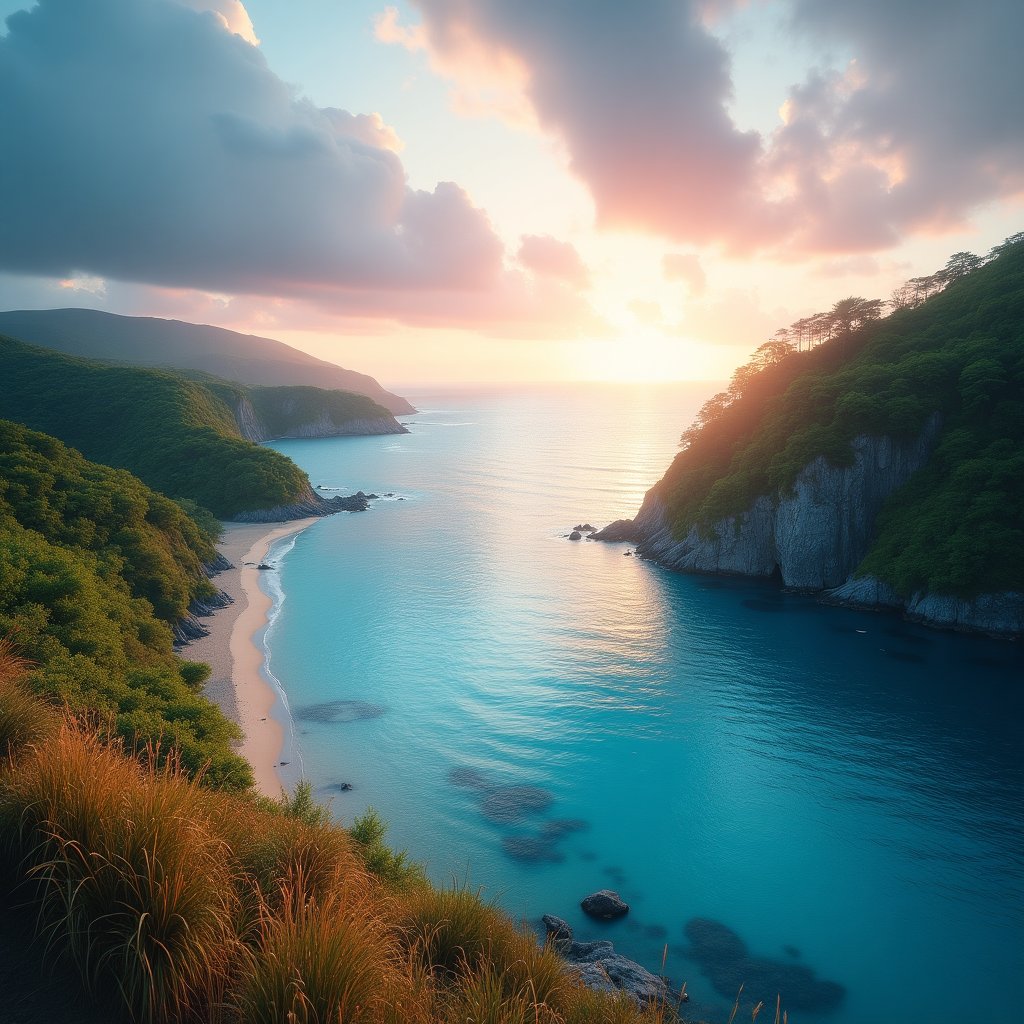Ever wondered why folks have always been drawn to coastal living or why the songwriters croon about "living life by the sea"? Well, there's a new wave of research that's steadily crept up shore, revealing that our love for "blue spaces" might be more than just an aesthetic yearning. According to scientists, residing within a stone’s throw—or precisely 330 yards—of water bodies like the sea, lakes, or rivers could steer us clear of the mental fog that often comes with aging.
Credit where it's due: This newfound revelation stems from a sterling study conducted in the UK, shining a light on how these natural landscapes could be a game-changer for our mental faculties. For those eager to dive deeper into the particulars, take a detour and read the original article shared by our erudite friends at the Daily Mail.
Why We’re Drawn to Blue Spaces
First, let's set the scene. Envision the limitless expanse of the ocean stretching beyond the horizon, or a serene river meandering its way through lush valleys. It’s not just picturesque; it’s an emotional voyage. Blue spaces have this uncanny ability to stir dormant feelings of freedom, peace, and calm—a trifecta every stressed-out soul craves.
Here's where the researchers swoop in with evidence. It appears that living by these water worlds isn't just a balm for the weary urbanite—it may literally bolster our brains against age-related slip-ups. Imagine the sea’s vast embrace keeping those senior moments at bay.
Digging Into the Findings
The study pulled data from a sea of subjects spread across the United Kingdom. Middle-aged and older individuals residing near coastal reserves were found to exhibit fewer cognitive blunders as they edged into later life. These participants scored better on memory tasks and displayed enhanced mental acuity compared to their peers isolated inland. Indeed, proximity to the soothing lullaby of rolling waves seems to wield its magic wand.
Nature's Cure: Is Proximity All That Matters?
But hold your horses! For all the allure of a beachfront property, let's not set sail without a dash of caution. The study didn't explicitly say that it's the water alone guarding us from mental decline. There's a cocktail of factors coalescing here.
For one, waterside dwellers often have access to more recreational activities—not merely suntanning or beach volleyball—but engaging with nature, which has been known to physically and mentally rejuvenate us. Think of it as nature’s own reset button.
Does Economic Status Play a Role?
Not to be overlooked is the role of socio-economic status in coastal living. While some manage to seize prime ocean-view real estate, others may not find it as accessible. A wealthier lifestyle often means better access to healthcare, nutrition, and, yes, peace of mind, which also factors into mental sharpness. In this light, blue spaces become both a privilege and an elusive dream.

The Bigger Picture
This leads us to ponder how blue space accessibility could shade the broader canvas of public health. As urbanization continues its relentless march forward, cities are forced to grapple with areas bereft of nature, potentially pushing residents into cognitive decline sooner than necessary.
Reimagining Our Cities
In this context, rethinking urban design becomes pivotal. Should city planners craft more green and blue spaces in urban stretches to mimic the brain-boosting benefits of these natural habitats? Would the roar of artificial waterfalls and the sparkle of man-made lakes offer a similar retreat from concrete jungles?
Your Thoughts?
Let's splash into this conversation. What do you think about this intriguing study? Are you already debating a move waterside, or do you feel it's more frill than fact? Keen to hear your thoughts! Dive into the comments and let’s start a conversation. Join us at iNthacity: the "Shining City on the Web", and elevate your living experience one ripple at a time. Don’t forget to share this brainwave and invite others to weigh in. Together, let’s redefine how we think about living by the water!
Wait! There's more...check out our gripping short story that continues the journey: A Call Beneath the Waves
Disclaimer: This article may contain affiliate links. If you click on these links and make a purchase, we may receive a commission at no additional cost to you. Our recommendations and reviews are always independent and objective, aiming to provide you with the best information and resources.
Get Exclusive Stories, Photos, Art & Offers - Subscribe Today!

























1 comment